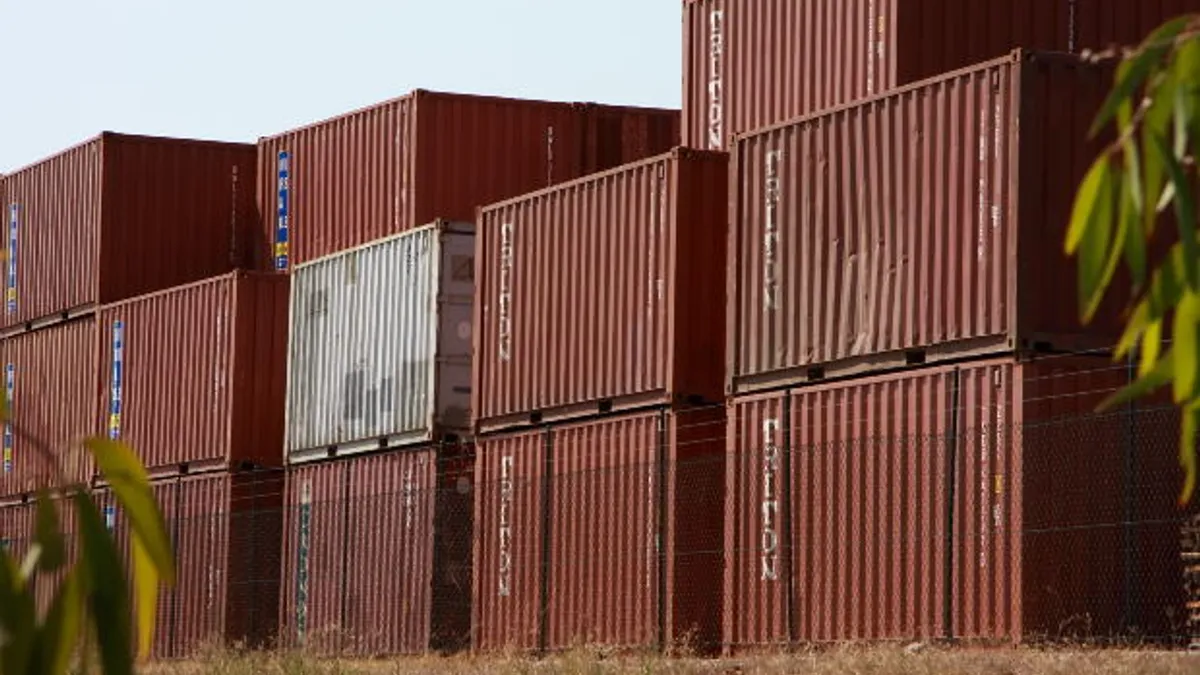Dive Brief:
- In a series of Nov. 15 filings with the World Trade Organization (WTO), China's Ministry of Environmental Protection (MEP) proposed adopting new contamination standards on Dec. 31, 2017 with an "entry into force" on March 1, 2018. The comment period for this filing will end Dec. 15, 2017.
- These filings describe a slight relaxation of the previously announced 0.3% carried waste standard for all materials. The new standard for both "waste and scrap of plastics" and "waste and scrap of paper or paperboard" would be 0.5%.
- The MEP also proposed a 0.5% standard for smelt slag, wood, waste electric motors, wires and cables, metal and appliance scrap, and ferrous metals. The standard for non-ferrous metals would be 1.0%. The automobile scrap standard is still 0.3%. All filings list "Protection of human health or safety; Protection of animal or plant life or health; Protection of the environment" as the objective of these proposals.
Dive Insight:
Unconfirmed rumors that the MEP was going to loosen its contamination standards have been circulating both in the U.S. and China this week, and these filings with the WTO confirm that. While some had hoped that the standard would be raised to 1.0%, the only material to get that specification was non-ferrous metals.
These new filings seem to show that Chinese officials are being responsive to comments filed with the WTO from groups like the Solid Waste Association of North America (SWANA), the Institute of Scrap Recycling Industries (ISRI) and the National Waste & Recycling Association (NWRA). The topic was reportedly raised by the U.S., Canada, Japan, Australia and the European Union during a recent meeting of the WTO's Technical Barriers to Trade Committee. It was along on the agenda for President Trump's recent visit to China.
SWANA CEO David Biderman, who initially flagged the WTO filings, said that his organization will likely file comments. "We are in close contact with ISRI and other stakeholders analyzing the impact of this new development," he wrote. ISRI President Robin Wiener wrote in a statement her organization would submit comments through the WTO and directly to the Chinese government. "Although ISRI is heartened that the new proposal moves away from the 0.3% threshold, the new levels are still of great concern," she wrote.
In a statement, NWRA CEO Darrell Smith said his organization also expects to file a comment. "While [the standards are] less strict, it's still a very tight specification to meet," said Smith. "There's not much relief there."
The U.S. Department of Commerce and Office of the U.S. Trade Representative did not respond to requests for comment.
This news does not appear to affect the MEP's July filing notifying the WTO of a ban on mixed paper and plastics effective "by the end of 2017." Multiple organizations, including RISI, also confirmed this interpretation of the latest filings.
More details can be expected to emerge as organizations react and comments are filed. While a March enforcement date provides some extra time, even these newly relaxed standards will still be hard to meet for most MRFs around the country. Many facilities have slowed down their lines, brought in additional labor and doubled down on contamination messaging to generators as a result.












